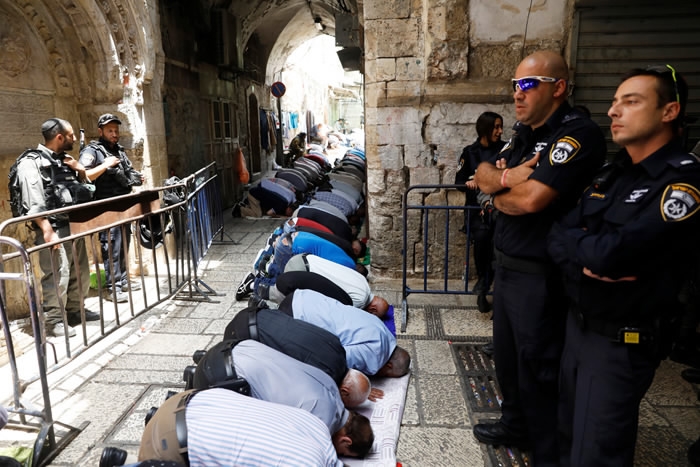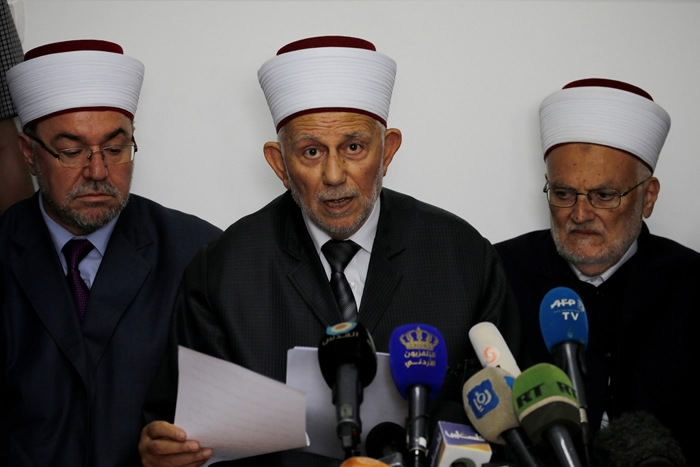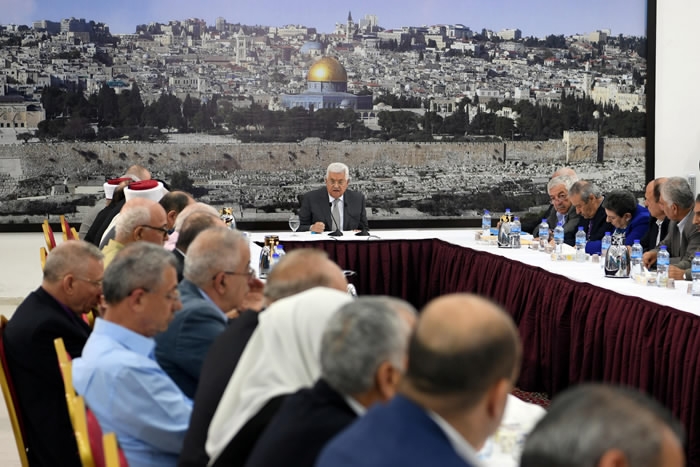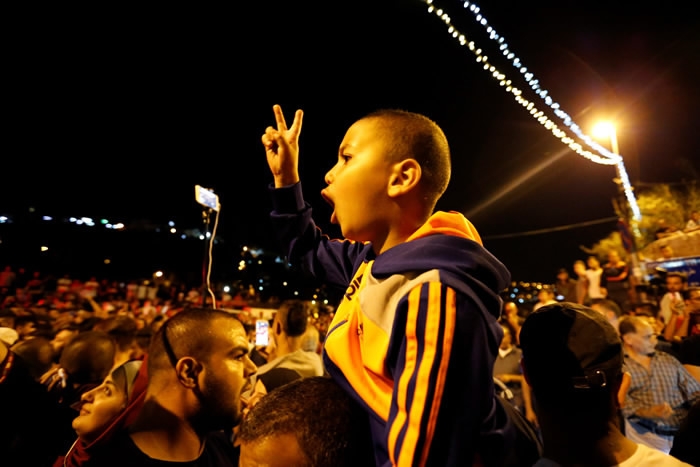Palestinians will return to pray at a sensitive Jerusalem holy site Thursday after Israeli authorities removed controversial security measures there, potentially ending a nearly two-week crisis that sparked deadly unrest.
Muslim authorities announced a boycott of the Haram al-Sharif compound, known to Jews as Temple Mount, was to end Thursday afternoon after Israel removed remaining new security measures.
The compound includes the revered al-Aqsa mosque and the Dome of the Rock.

Palestinian men pray as Israeli security forces secure outside the compound known to Muslims as Noble Sanctuary and to Jews as Temple Mount, in Jerusalem's Old City, July 26, 2017.
Abbas calls on worshippers to return to al-Aqsa
After two weeks, Muslim elders declared themselves satisfied with Israeli authorities reverting security to how it was before July 14.

Abdel-Azeem Salhab (C), director of the Islamic Waqf Council, sits next to other Muslim elders as he speaks during a news conference regarding Israel's removal of security measures at al-Aqsa compound in Jerusalem, July 27, 2017. /Reuters Photo
"The technical report showed that all obstacles the occupation (Israel) put outside al-Aqsa mosque were removed," said Abdel-Azeem Salhab, head of the Waqf, the Jordanian-funded trust that oversees Jerusalem's Muslim holy sites.
"We praise this stand in the past two weeks outside al-Aqsa and we want this stand to continue outside al-Aqsa and now inside al-Aqsa," he said, urging worshippers to return to pray.
Palestinian political factions issued statements supporting the Waqf announcement, which may help quell the unrest.
Palestinian President Mahmud Abbas joined calls for worshippers to return to the site. "The prayers will happen, God willing, inside the al-Aqsa mosque," Abbas told a press conference.
Abbas announced a freeze on contacts with Israel last week over the dispute, including security coordination, and said Thursday a meeting would be held on whether to lift it.

Palestinian President Mahmoud Abbas (C) attends a meeting with the Palestinian leadership in the West Bank city of Ramallah, July 21, 2017. /Reuters Photo
Celebrations at site
The removal of the installations overnight prompted Palestinian crowds to celebrate in the streets near the site.
In the pre-dawn hours of Thursday, crowds of Palestinians gathered at the entrance of the site to celebrate the removal of the remaining security installations, with whistling and constant horns from cars.
"For 12 days no one has slept, no one has done anything except the al-Aqsa mosque," he said.

Palestinians celebrate outside Lion's gate at the entrance to Jerusalem's Old City following Israel's removal of security measures, July 27, 2017. /Reuters Photo
Israel's backtracking 'calms' situation
Jordan said on Thursday Israel's removal of security measures installed on the Muslim holy site in Jerusalem would pave the way to calm the situation in Palestinian territories and defuse tensions.
Israel's decision to remove the security measures comes after days of diplomatic efforts by the United Nations, a visit by US President Donald Trump's Middle East envoy and pressure from countries in the region, including Jordan and Turkey.
It represents a climbdown by Israel, something Palestinian political factions were quick to highlight for leverage.
However, the detectors have been replaced by separate security measures, including closed-circuit cameras and low metal gates. This has further angered Palestinian leaders and the local population, who have threatened a "day of rage" on Friday.
A spokesman for Israeli Prime Minister Benjamin Netanyahu declined to comment on the decision.
(Source: Reuters, AFP)
Related stories:
All security measures at Jerusalem holy site removed
Israel to replace metal detectors with new security measure at Jerusalem mosque










